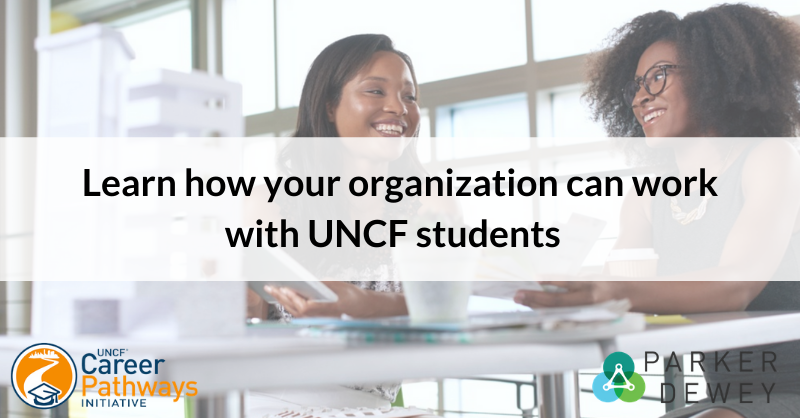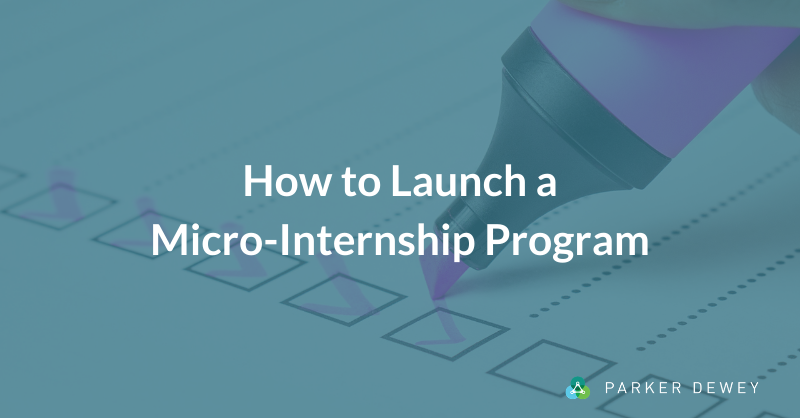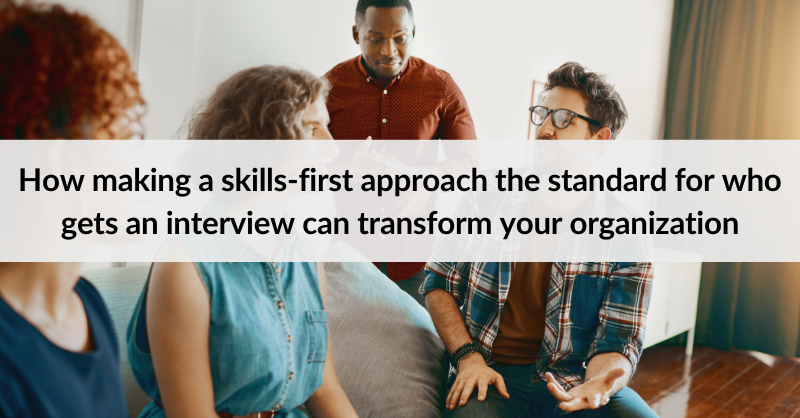.png)
Is Your Company Ready for the Future of Work?
With so much disruption during the past year, professionals across every industry, role, and organization are wondering: What does the future of work look like moving forward? How will this impact our organization? Am I prepared?
Last week’s LinkedIn’s virtual event addressed these questions with three key insights:
- Skills-based hiring is key. Gone are the days of relying on academic pedigree, networks, and major to make hiring decisions, especially for summer interns or new hires. Experiential recruiting tools like Micro-Internships are a powerful way of assessing skills not captured on a student's resume or transcript.
- Companies need better accountability on DEI strategies, as most aren't having the expected impact on diversity or the business. While the big announcements, banners, and trainings may be important, all too often they aren’t overcoming the challenges embedded into recruiting and other processes.
- Experimentation and empathy have become superpowers, with HR leaders needing to test new strategies and approaches. Fortunately, there are many ways to do so that are low-risk and high-impact.
While these insights prove important across the board, Parker Dewey's research shows they are vital for campus recruiting and other early career initiatives. As we've seen during the past six years, experiential recruiting with Micro-Internships is a great way to address all of these areas! For ideas on how to introduce Micro-Internships at your company, check out these five strategies.
Jeffrey Moss, Founder and CEO
Articles of the Week
3 Key Insights on the Future of Work from LinkedIn’s Virtual Event - LinkedIn Talent Blog
4 Ways Executives Can Attract Top Talent - SHRM
Training Leaders Concerned About Younger Workers’ Employment Hurdles - HR Dive
Helping Freelancers Start Out Well And Experience Early Success - Forbes
3 Key Insights on the Future of Work from LinkedIn’s Virtual Event - LinkedIn Talent Blog
“‘It's no longer enough just to look for years of experience or degrees...We need to redesign the jobs and think about them completely differently.’”
With perspectives from 12 industry leaders, this panel covers three key topics: skills-based hiring and internal mobility, DEI and belonging, and work flexibility in a post-COVID world.
Related reading: The pandemic's impact on hiring strategies points to a new, human-centered approach
4 Ways Executives Can Attract Top Talent - SHRM
“If you are going to compete in the market for top talent, every touchpoint a candidate has with your company is a chance to convince them that your company is the better place to grow their career.”
In a market oversaturated with attractive job prospects and consumer brands, how can companies draw in top talent? This article explores four strategies. (Among them, differentiating your offering and creating a great candidate experience—both of which can be accomplished through Micro-Internships!)
Related reading: Is your entry-level hiring strategy broken?
Training Leaders Concerned About Younger Workers’ Employment Hurdles - HR Dive
“The skills needed to operate effectively in a remote work environment are different from the classroom-based environment that many younger workers have experienced.”
With the movement towards remote learning this past year, do recent graduates and younger workers entering the job market have ample soft skills, like grit and emotional intelligence? This article examines some of the challenges younger workers will face as they seek employment post-pandemic and how employers can help ease the transition.
Related reading: Why Soft Skills are Core Skills
Helping Freelancers Start Out Well And Experience Early Success - Forbes
“There is no more important outcome for a platform than the retention of its highest performing and most engaged freelancer platform members.”
This CEO panel discusses strategies for setting freelancers up for success—like ensuring role clarity, offering up interesting work, and creating opportunities for freelancers to bond with full-time employees.
Related reading: How Freelance Became My Engine to Meaningful Work
For more stories and insights on HR, recruiting, and diversity, click here to subscribe to our weekly newsletter Hire Learnings.




